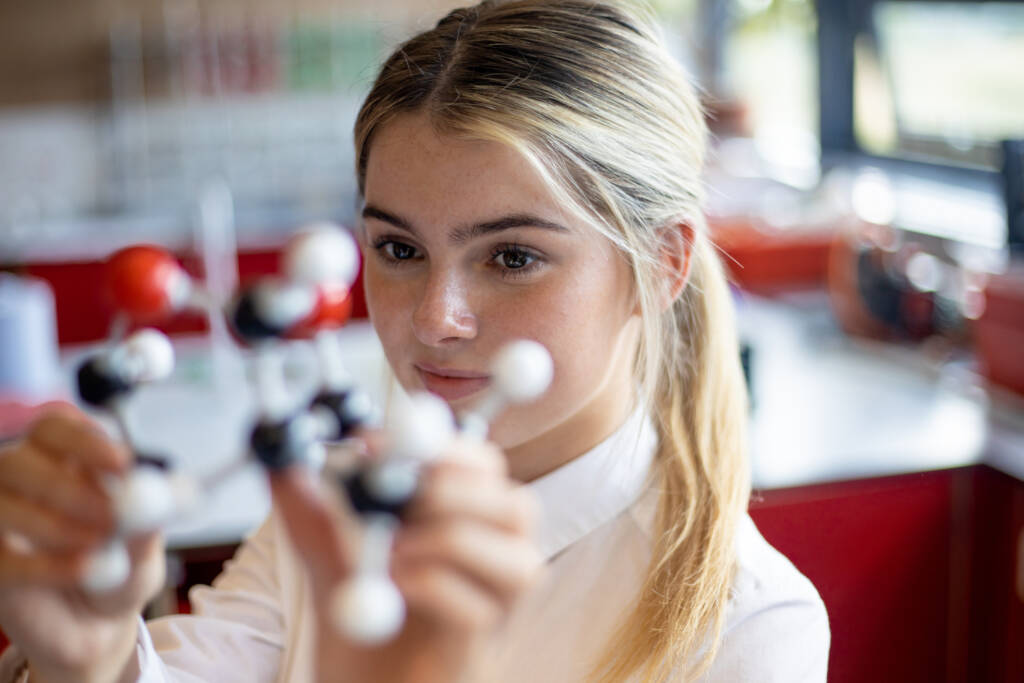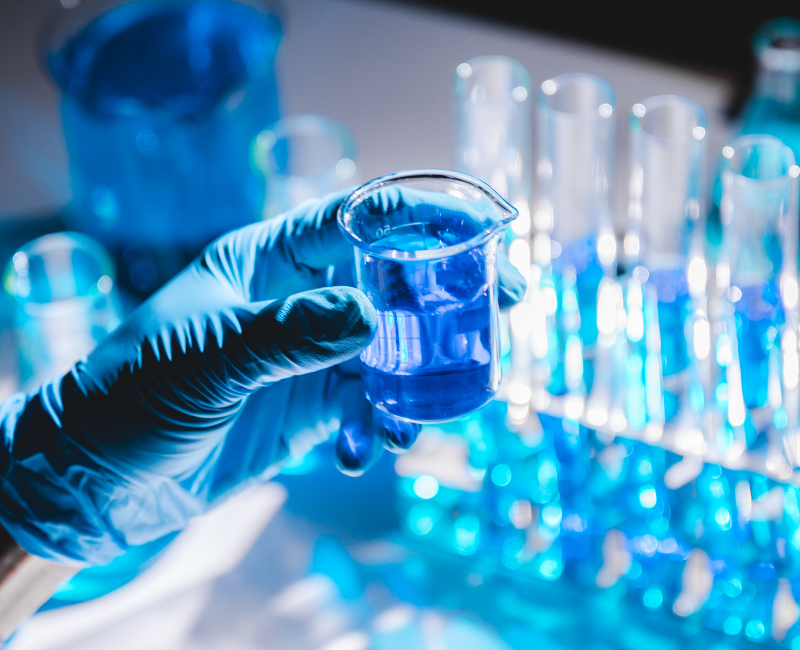
CLEP: Chemistry

The Modern States Chemistry course reviews material typically taught in a full one-year college- and university-level General Chemistry course. Our goal in designing this course was to prepare you to take and pass the College Board’s CLEP examination and obtain college credit in chemistry for free.
The CLEP examination emphasizes heavily the following topics: understanding the structure and states of matter, reaction types, equations and stoichiometry, equilibrium, kinetics, thermodynamics, and descriptive and experimental chemistry.
Competencies
Structure of Matter and the Periodic Table
Students will demonstrate an understanding of the structure of matter and the periodic table by explaining atomic theory, describing electron energy levels, explaining nuclear chemistry fundamentals, and describing periodic relationships.
Equations and Stoichiometry
Students will demonstrate an understanding of equations and stoichiometry by describing the mole concept, calculating limiting reagent and yields in stoichiometric reactions, explaining the balancing of equations, and describing aqueous solutions.
Phases of Matter
Students will demonstrate an understanding of phases of matter by describing precipitation and dissolution calculations, explaining gas laws, describing phase diagrams and critical points of liquids and solids, and describing solutions and concentrations.
Bonding and Intermolecular Forces
Students will demonstrate an understanding of bonding and intermolecular forces by explaining bonding forces, explaining molecular geometry, describing bonding and molecules, and explaining effects of attractions on properties.
Equilibrium
Students will demonstrate an understanding of equilibrium by calculating equilibrium constant and solving equations involving Le Chatelier's Principle.
Kinetics and Thermodynamics
Students will demonstrate an understanding of kinetics and thermodynamics by solving problems involving laws of thermodynamics, solving problems involving rate of reaction, and calculating activation energy.
Acids and Bases
Students will demonstrate an understanding of acids and bases by calculating acid and base equilibrium, explaining weak acid and base calculations, and describing common and complex ions.
Electrochemistry
Students will demonstrate an understanding of electrochemistry by describing oxidation numbers, explaining electrons and redox reactions, solving problems involving electrochemistry, and explaining quantitative electrolysis calculations.
Descriptive Chemistry
Students will demonstrate an understanding of descriptive chemistry by describing properties and use of the main groups of elements, describing properties and use of the transition metal group, and explaining structure and naming of organic compounds.
Experimental Chemistry
Students will demonstrate an understanding of experimental chemistry by describing applications of chemistry tools, explaining observations and calculations of experimental chemistry.

